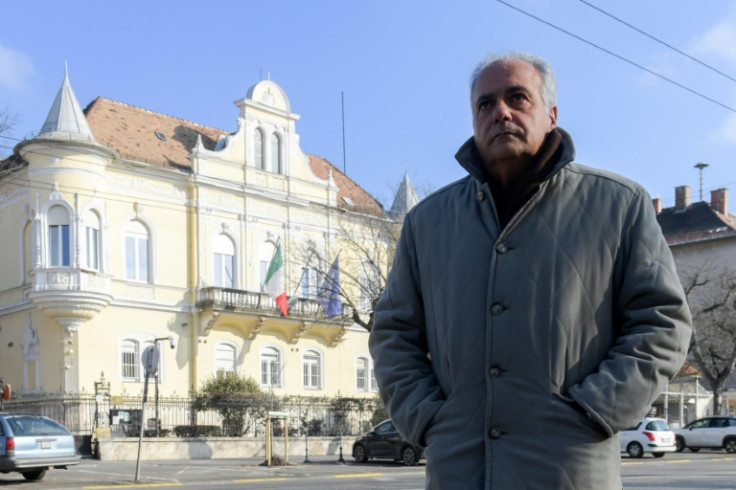
Italy's government said Tuesday that Budapest authorities went "too far" in putting in chains an Italian woman awaiting trial for attacking neo-Nazis, as it summoned the Hungarian envoy in protest.
Images of Ilaria Salis, 39, with her hands handcuffed and chained and her feet locked together as she sat in court on Monday were on the front pages of Italy's major newspapers, amid rising outrage over her case.
The teacher from Monza, near Milan, was arrested in Budapest in February last year following a counter-demonstration against a neo-Nazi rally.
She was charged with three counts of attempted assault and accused of being part of an extreme left-wing organisation.
She denies the charges, which could see her jailed for up to 11 years.
"This time it seems to me it has gone too far," Italian Foreign Minister Antonio Tajani told RAI radio.
Later Tuesday, Italian news agency AGI reported, without citing sources, that Prime Minister Giorgia Meloni had a telephone conversation with her Hungarian counterpart, Victor Orban, in which she brought up Salis's case.
In his comments, Tajani said that he did not want to interfere in Hungary's justice system, but that "treating a prisoner in that way really seems inappropriate, not in tune with our legal culture".
The Hungarian charge d'affaires had been summoned to the foreign ministry on Tuesday to explain, Tajani said, adding: "We are in the European Union and there are citizens' rights that must be respected."
Tajani said he had previously spoken to Hungary's foreign minister about the case.
Salis's father has for months been campaigning for an intervention in the case by the coalition government of Meloni, who has warm ties with Orban.
Roberto Salis said his daughter was treated in court on Monday "like an animal" and noted she had previously been held in similar conditions, and Italian embassy officials had seen it.
He has said his daughter was living in "inhuman" conditions at a maximum security prison in a cell filled with vermin, with shortages of food and hygiene products.
The Italian ambassador on Tuesday also paid a visit to the justice ministry in Budapest after meeting with Salis's father.
Tajani proposed that Salis be put under house arrest rather than held in jail, while his ministry has also called for her lawyers to have Italian translations of court documents and access to a surveillance video of the alleged assault.
Salis's Hungarian lawyer Gyorgy Magyar told AFP that his client had so far refused to give her "version of events" due to not being able to access the "facts in her native language".
The court has agreed to provide her with the information in Italian, he added.
Asked about her prison conditions, Magyar said they "leave a lot to be desired".
"If she were to decide to lodge an official complaint, it would be well founded," he said.
Meloni, leader of the post-fascist Brothers of Italy party, has long been close to Hungary's nationalist premier.
But they have diverged over Ukraine, with Rome sending money and weapons to Kyiv to help it defend itself against Russia's invasion, while Orban vetoed a multibillion-euro EU aid package for Kyiv in December.
The Council of Europe, a rights body, has criticised Hungarian jails as among the most overcrowded on the continent.
According to Eurostat, Hungary and Poland had the highest prisoner rates in the EU in 2021, with 191 prisoners per 100,000 inhabitants.
Asked about the case, a spokesman for the European Commission said Tuesday that detention conditions were the responsibility of EU member states, but that there was a debate underway over "basic minimum standards".
Salis is due to stand trial on May 24.







